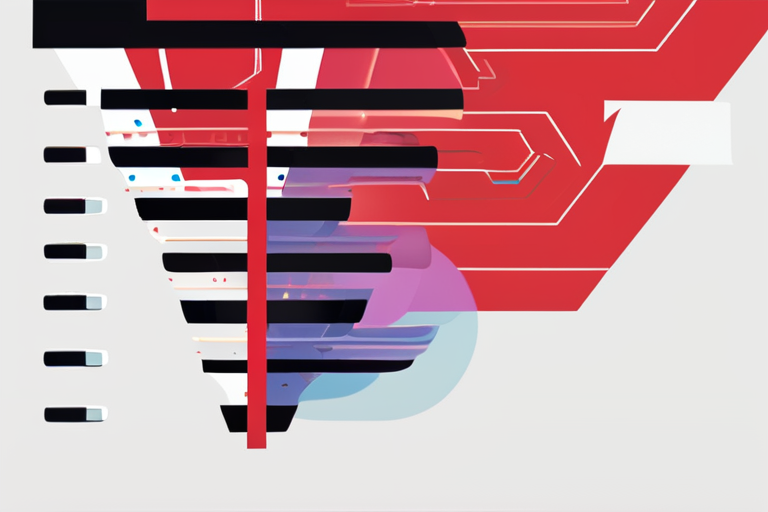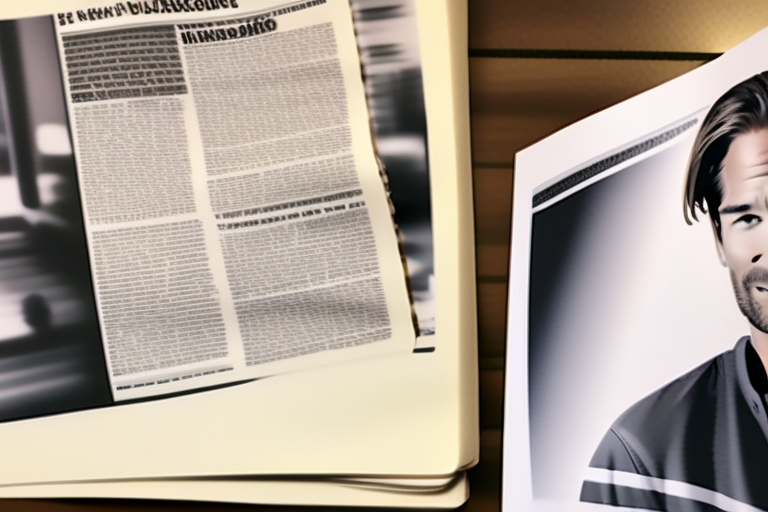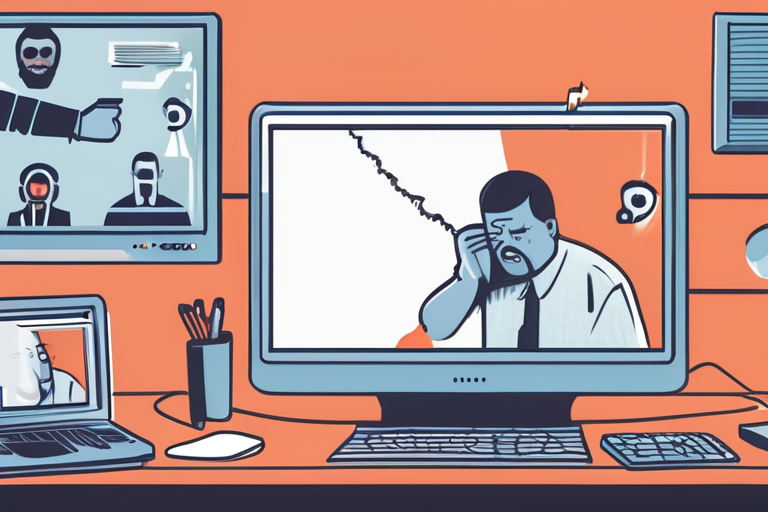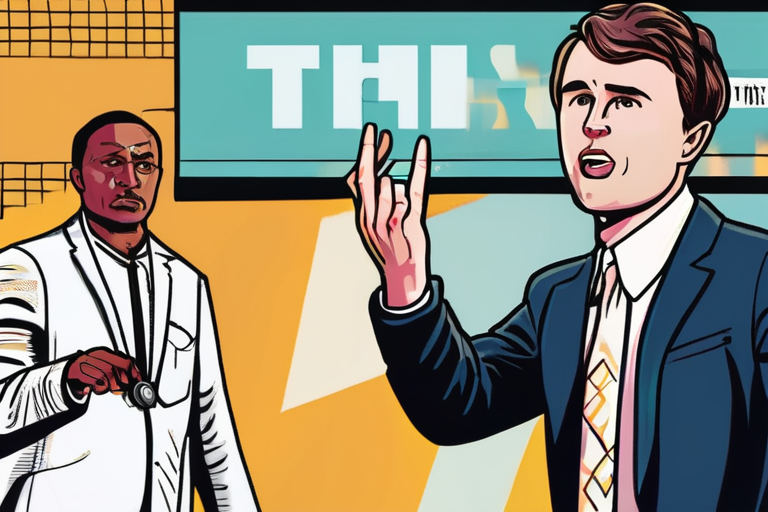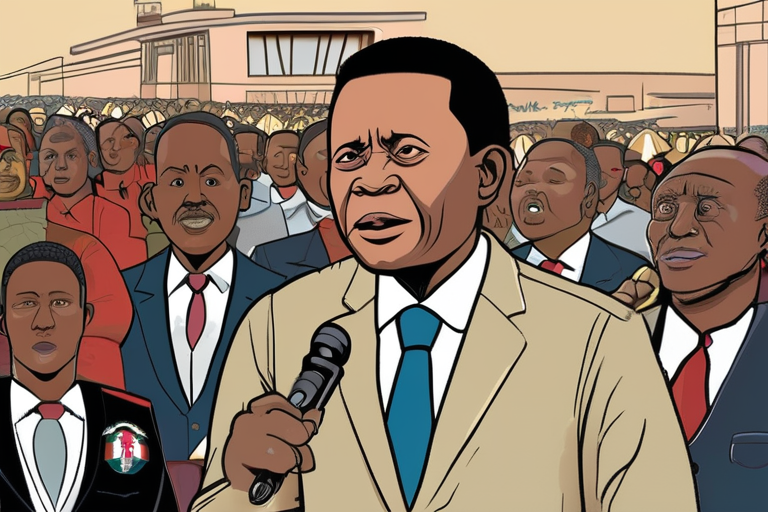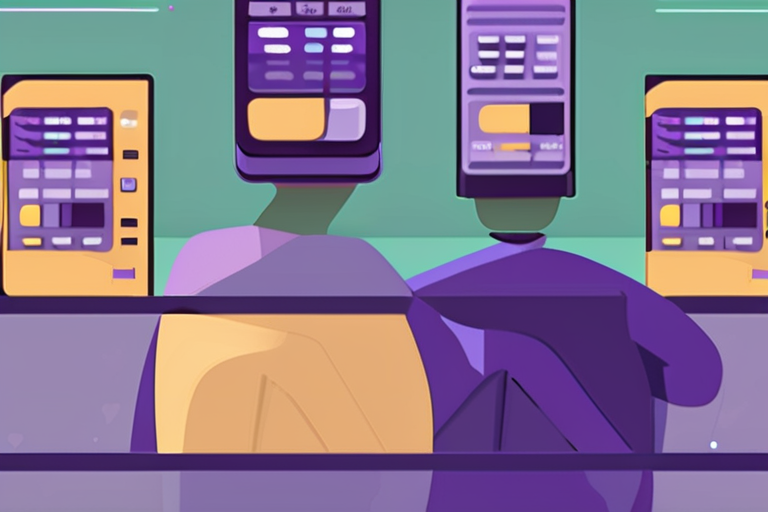The AI Revolution: How Netflix is Embracing Generative Tech to Redefine the Future of Entertainment
Imagine a world where your favorite TV show or movie is not only created with the help of artificial intelligence, but also looks and feels like it was made by a team of visionary artists. Sounds like science fiction? Think again. As the entertainment industry grapples with the implications of generative AI, Netflix has boldly declared itself "all in" on this revolutionary technology.
In its latest quarterly earnings report, Netflix revealed that it's leveraging advances in AI to make creatives more efficient and enhance the overall viewing experience for its 220 million subscribers worldwide. But what does this mean for the future of entertainment? We spoke with industry insiders, artists, and experts to find out.
For Ted Sarandos, CEO of Netflix, the potential of generative AI is clear: "AI can give creatives better tools to enhance their overall TV-movie experience for our members." He's not alone in his enthusiasm. In recent months, Netflix has experimented with using generative AI in various productions, including the Argentine show The Eternaut and the upcoming sequel to Happy Gilmore. The results are nothing short of astonishing.
Take, for example, the scene where a building collapses in The Eternaut. Instead of relying on expensive special effects or manual labor, Netflix used generative AI to create the illusion of destruction. "It was like magic," said one insider who worked on the show. "We were able to achieve something that would have taken weeks to do manually in just a few hours."
But not everyone is convinced that generative AI is the future of entertainment. Some artists worry that relying too heavily on technology will lead to a loss of human touch and creativity. "AI can't replace the spark of imagination that comes from a human being," said one veteran director who prefers to keep his productions old-school.
The debate over AI's role in filmmaking has been raging for months, with some arguing that it's a game-changer and others claiming it's a threat to traditional storytelling. But Netflix is undeterred. "We're not chasing novelty for novelty's sake here," said Sarandos. "AI has the potential to help us tell stories better, faster, and in new ways."
So what does this mean for audiences? For one thing, expect more visually stunning productions that push the boundaries of what's possible on screen. But it also raises questions about authorship and ownership – who owns the creative rights when AI is involved?
As Netflix continues to experiment with generative AI, one thing is clear: the future of entertainment has never looked brighter – or more uncertain.
The Human Side
Behind every great production is a team of creatives working tirelessly to bring their vision to life. But what happens when technology starts to play a bigger role in that process? We spoke with some of the artists who worked on Netflix's AI-powered productions to get their take on this brave new world.
"I was skeptical at first, but once I saw how it could enhance our work, I was sold," said one producer who used generative AI to envision wardrobe and set design for Billionaires Bunker. "It's not about replacing humans, but about giving us the tools we need to tell better stories."
But not everyone is convinced. "I worry that we're losing sight of what makes us human in all this," said a veteran director who prefers traditional methods. "AI can't replace the spark of imagination that comes from a human being."
The Industry Impact
As Netflix continues to push the boundaries of generative AI, the rest of the industry is taking notice. Some studios are already experimenting with similar technologies, while others are more cautious.
"It's a double-edged sword," said one studio executive who prefers to keep his productions old-school. "On the one hand, AI can help us create more visually stunning productions. On the other hand, it raises questions about authorship and ownership that we've never had to deal with before."
The Future of Entertainment
So what does this mean for the future of entertainment? One thing is clear: generative AI is here to stay – at least in some form. Whether or not it replaces traditional storytelling methods remains to be seen.
As Netflix continues to experiment with this revolutionary technology, one thing is certain: the future of entertainment has never looked brighter – or more uncertain.
*Based on reporting by Techcrunch.*
